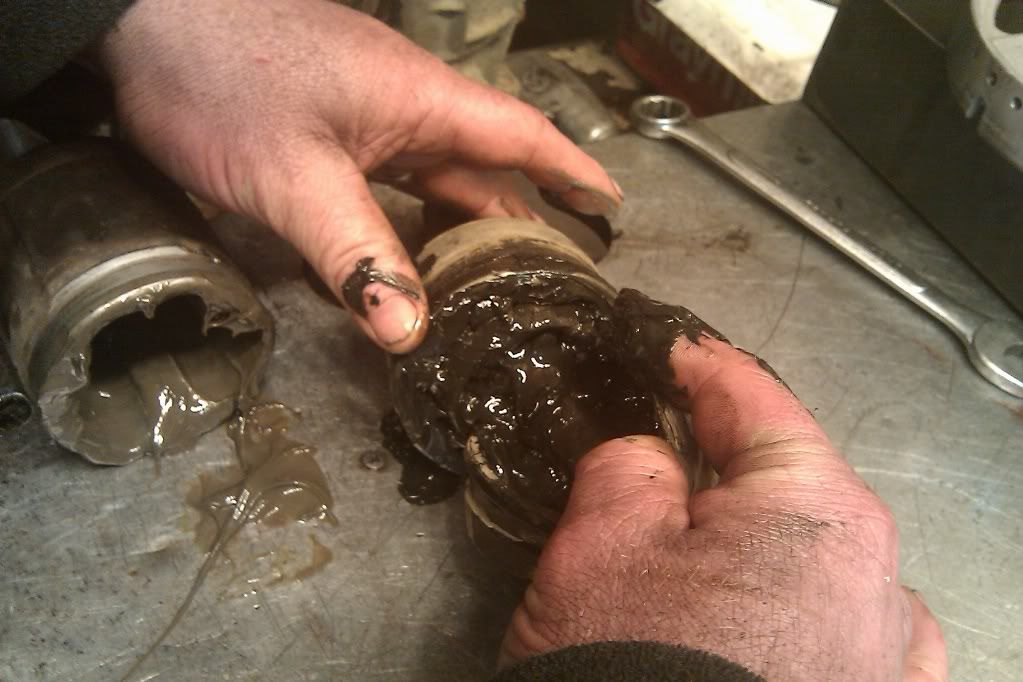Originally Posted By: Rix
No, frank, this is NOT the place.
First, YOU are trying to SELL YOUR GREASE.
Second, you are trying to pawn it of as what the factory used, and that IS A LIE. Plain and simple. A LIE.
You CANNOT provide proof that it was used at the factory level, because it wasn't.
I have had original, un-molested (confirmed, mind you) axles apart. So has E-rock. So have the other's you're trying to say are wrong, such as Marlin, Longfield, etc.
You HAVE NOT.
You say you want to shed light on this situation?
So put up or shut up.
Post the brand name of what it is you're selling, so it can be researched.
Rixxer,
Settle down, I am not selling grease on "Bob" I do have this grease but I am selling it thru Novak adapt,
It is one of possibly several types of grease suitable in this application,
Beside the point, I am posting on "Bob" to educate, inform,that is all, 93 Chewbacca hoped that this site could shed some light on this situation,
I am doing that, to the best of my ability, Talking about CV joint grease,
I make no bones about it, this is the educational phase, if at some point "Bob" wishes me to become a contributing member, great, I will scrape some $ together and buck up,
I would like to think, that the information at this point provided from hours of research ,studying this design to get folks the correct information about the grade of grease needed for proper lubrication of this axle, will suffice,
Also, Because of the depth of misunderstanding, effective "Brainwashing" of the consumer, I cant even give the correct grade of grease to a Toyota owner,
Folks that do not even have this axle are testing it, in conventional open knuckle axles,
So no not selling just talking about grease, grade, applications on a grease site,
No, frank, this is NOT the place.
First, YOU are trying to SELL YOUR GREASE.
Second, you are trying to pawn it of as what the factory used, and that IS A LIE. Plain and simple. A LIE.
You CANNOT provide proof that it was used at the factory level, because it wasn't.
I have had original, un-molested (confirmed, mind you) axles apart. So has E-rock. So have the other's you're trying to say are wrong, such as Marlin, Longfield, etc.
You HAVE NOT.
You say you want to shed light on this situation?
So put up or shut up.
Post the brand name of what it is you're selling, so it can be researched.
Rixxer,
Settle down, I am not selling grease on "Bob" I do have this grease but I am selling it thru Novak adapt,
It is one of possibly several types of grease suitable in this application,
Beside the point, I am posting on "Bob" to educate, inform,that is all, 93 Chewbacca hoped that this site could shed some light on this situation,
I am doing that, to the best of my ability, Talking about CV joint grease,
I make no bones about it, this is the educational phase, if at some point "Bob" wishes me to become a contributing member, great, I will scrape some $ together and buck up,
I would like to think, that the information at this point provided from hours of research ,studying this design to get folks the correct information about the grade of grease needed for proper lubrication of this axle, will suffice,
Also, Because of the depth of misunderstanding, effective "Brainwashing" of the consumer, I cant even give the correct grade of grease to a Toyota owner,
Folks that do not even have this axle are testing it, in conventional open knuckle axles,
So no not selling just talking about grease, grade, applications on a grease site,

